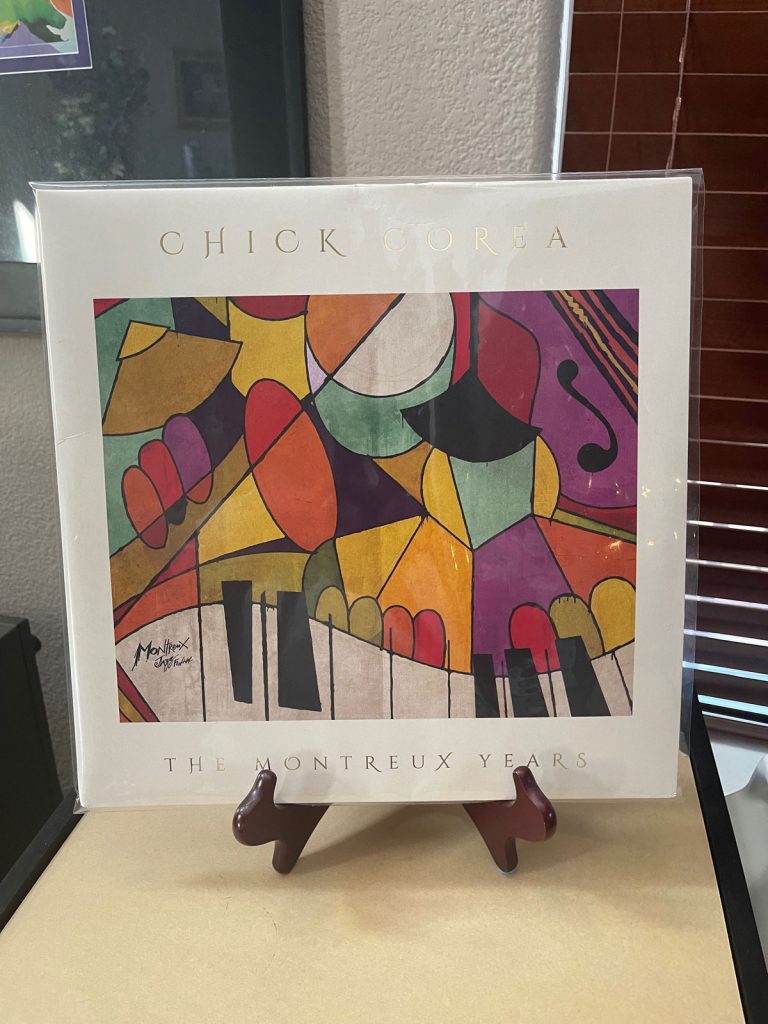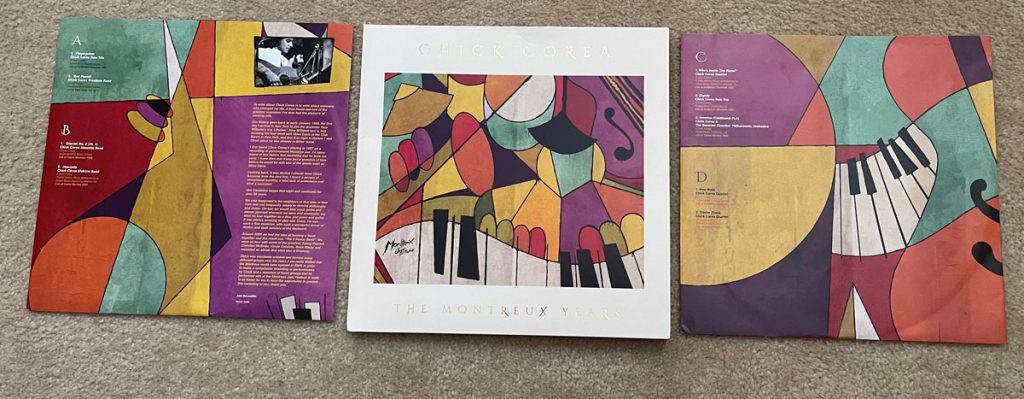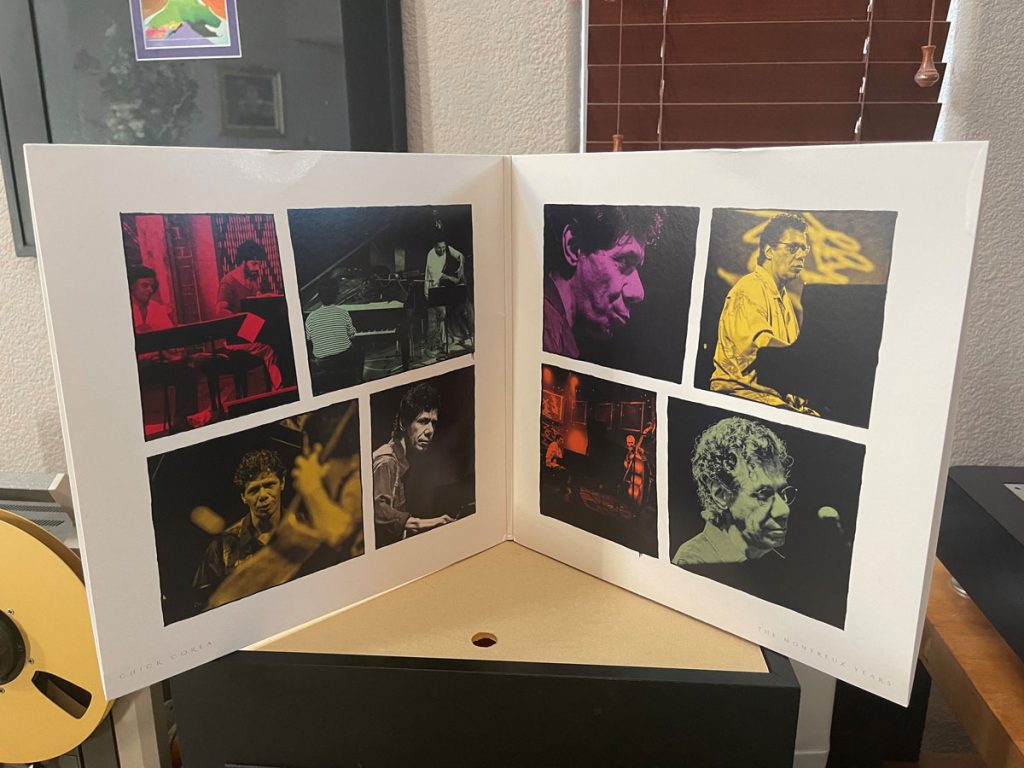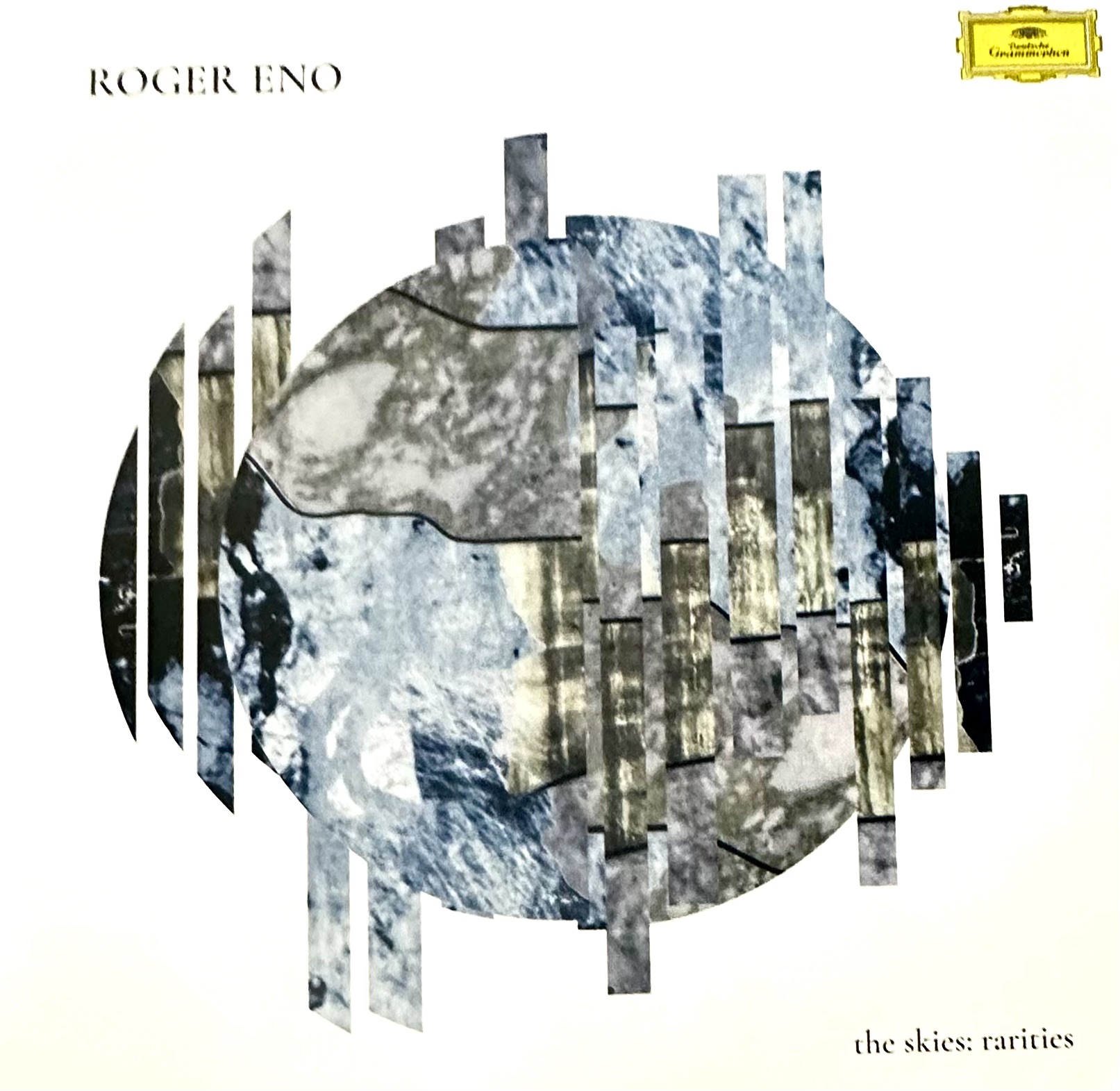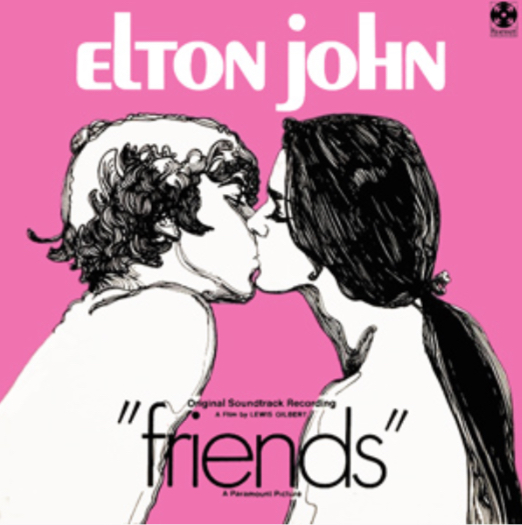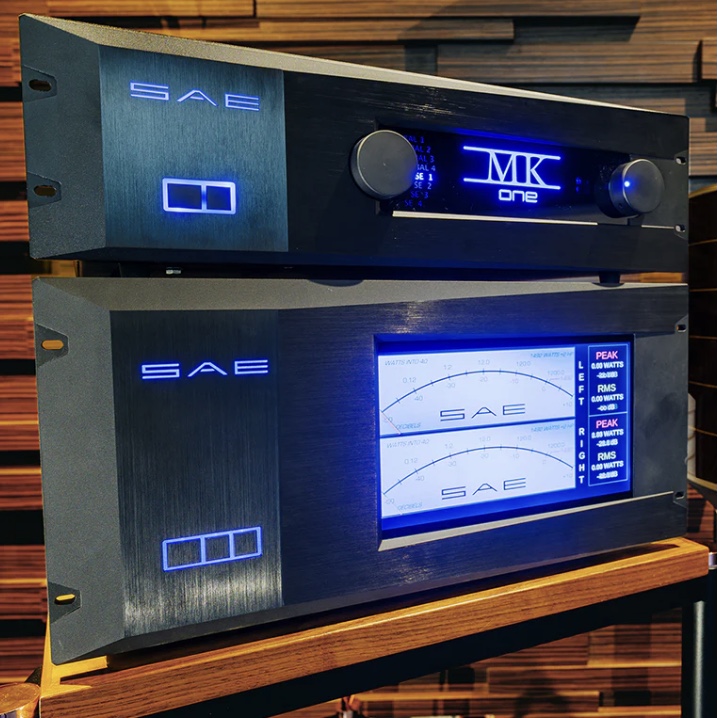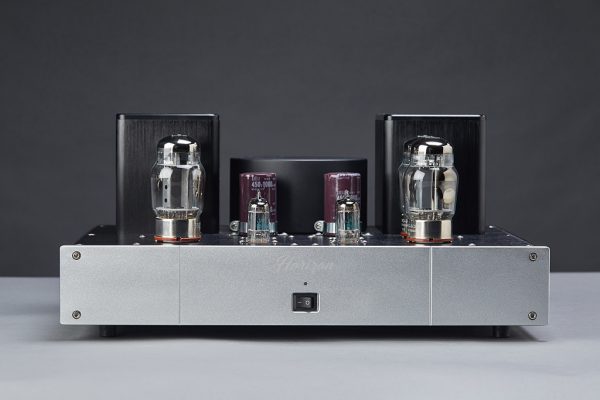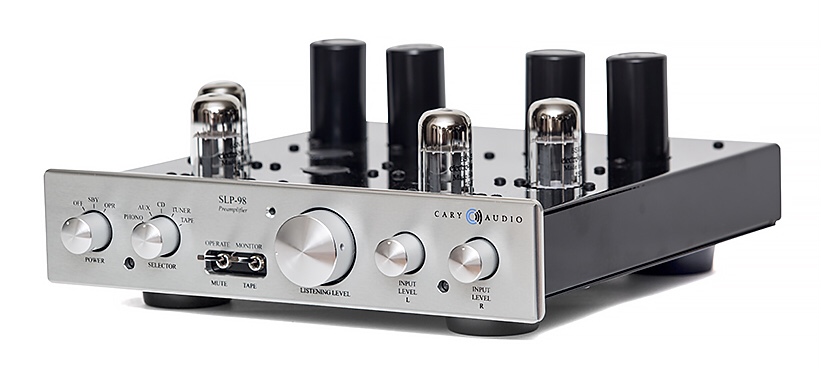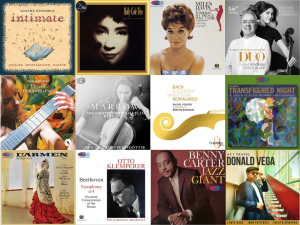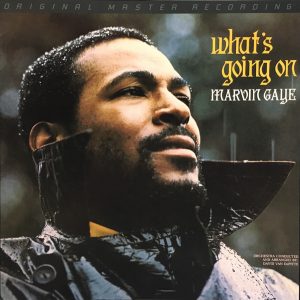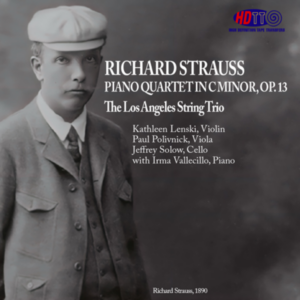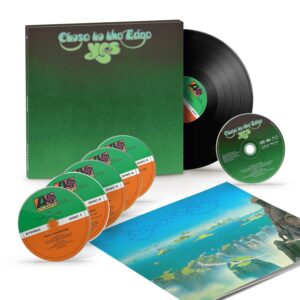Chick Corea, The Montreux Years. Double Album Set - Music Spanning Seven Years of Chick Corea at Montreux. BMG Records CAT583DLP
If you are a jazz fan then you know the name Chick Corea! He was born Armando Anthony "Chick" Corea and he was one of America's premier jazz composers, pianists, keyboardists, bandleaders, and occasional percussionists. Many of his compositions are now considered jazz standards. He became known to jazz fans most notably as a member of Miles Davis's group in the later 1960s and was an instrumental part of the birth of jazz fusion. (See what I did there…Instrumental.) A prolific collaborator he worked with many of the bigger names of the jazz scene. He really took the spotlight though when he formed Return to Forever with Keith Jarret, Herbie Hancock, and McCoy Tyner, who all went on to greatness in their own right.
Over the course of his career, as possibly the greatest jazz pianist of the last 50 years, he won 27 Grammy Awards and was nominated over 60 times! I could just do the pen drop right here based on those statistics and call it good right there. But wait there is more.
Chick was born in Chelsea, Massachusetts on June 12, 1941 just as the US was launched into World War II. His father, who was a jazz trumpeter, introduced a four year old Chick to the piano and the rest, as they are prone to say (whoever THEY are), is musical history. His jazz influencers were the likes of Dizzy Gillespie, Charlie Parker, Horace Silver, and Lester Young. You would be hard pressed to come up with a better list of of influences. When he was eight he began to play drums, which also explains his use of the piano in a very percussive way throughout his career.
After starting his playing career in high school and moving on to clubs with notable club players, he eventually landed in New York City. There he attended Columbia University and the prestigious Juilliard School, but found it less than satisfying and left school, but rooted himself in the New York City music scene.
This ultimately led to him recording his first album in 1966, Tones for Joan's Bones, which was not released till 1968. Things just took off for him after that and led to the gig with Miles Davis. I think most people see that collaboration as the real launching point for the stunning life long success for Chick. As things usually go in the industry he decided to move on with his own projects, and this led to the formation of Return to Forever in 1972. Of course he used that group as a springboard for a legendary list of collaborations, right up until his death in February 2021.
The purpose of this article is not a history lesson on the man's life, at least not the real focus, but rather a quick nod to the length and genius of his music and career. If you really want an in depth look at his life there are endless sources and articles about him out there and all are worth a read if you are a fan, which you must be since you are reading this right?
I will add a personal note here about a chance meeting with Chick in Kansas City right as I was out of college around 1980. I was driving by a promenade park in Kansas City, KS and noticed a rather sizable crowd of people gathered in the park, and I could here music as I was driving. I found a place to park and went to check it out. Lo and behold it was a free jazz concert. Before I even saw the musicians the playing struck me as rather unique and recognizable, and as I edged my way into the crowd and toward the small stage two of my favorite jazz musicians were right there in front of me playing. On the piano was Chick playing along with Gary Burton on vibes, playing music from the album Duets, which had just been released in the same year. I was not only stunned but considered it one of the most import performances I had ever seen. I missed the opportunity to see some of the greats such as Coltrane, Art Pepper, Chet Baker, Miles Davis, etc. That day I had the thrill of a lifetime. I actually got to speak to him during an intermission, and can only say that he was astoundingly gracious and engaging. It was also the day that I came to the very real understanding that I was no musician despite playing guitar and drums in some bands along the way. These guys were the absolute real deal and true musical geniuses. Despite being raised on a lot of jazz through my parents and my aunt I was more a Beatles, Led Zeppelin, Doobie Brothers guy, and had just recently forayed into jazz with George Benson, Pat Metheny, Al Dimeola, Jean Luc Ponty and a few others but had not had the massive plunge that would start immediately after that day.
When given the chance to review this album I considered it a one of the greatest honors of my reviewing career, which now spans 20 plus years.
The latest in the BMG records series The Montreux Years, this album is significant addition to the series and highlights one of the greatest jazz musicians in history performing arguably at his finest. It is also all the more significant since we lost the treasure that is Chick Corea a mere two years ago, although it seems a lifetime. This pressing includes some previously unreleased tracks from Claude Nob's private collection. Claude was the founder and general Manager of the Montreux Jazz Festival for those who may not know who he is.
This is a collection of some of Corea's most memorable performances spanning a seven year period. Remastered and recorded on 180 gram vinyl (also available on CD).
The track list is as follows:
Side A
- "Finger Prints" The Chick Corea New Trio, Live at the Auditorium Stravinsky 2001
- "Bud Powell" The Chick Corea Freedom Band, Live at Miles Davis Hall 2010
Side B
- "Quartet No. 2 (pt.1)" The Chick Corea Acoustik Band, Live at Casino Montreux 1988
- "Interlude" The Chick Corea Electrik Band, Live at Casino Barriere 2004
Side C
- "Who's Inside the Piano" The Chick Corea Quartet, Live at Auditorium Stravinsky 1993
- "Dignity" The Chick Corea New Trio, Live at Auditorium Stravinsky 2001
- "America (Continents Pt.4)" Chick Corea & The Bavarian Chamber Philharmonic Orchestra, Live at Casino Barriere 206
Side D
- "New Waltz" The Chick Corea Quartet, Live at the Auditorium Stravinsky 1993
- "Twinkle Tinkle" The Chick Corea Quartet, Live at the Casino Montreux 1981.
The album quality is superb. Noise floor is at an absolute minimum. I plan on recording it at 15ips on one of my reel to reel rigs and keep the vinyl as fresh as possible. Also because it is on two albums I would not be getting up as frequently to change the albums. Getting lazy in my old age. That being said if you have a good rig and a reasonable cartridge you will be impressed by the quality of the LPs. My copy had zero static, no pops or clicks, and still that way after five separate playing and listening sessions.
Every track in this set is a journey into the passion of a jazz perfectionist's mind and heart. Having seen him live there is little prepare the listener and audience member for the intensity with which Chick delivers his musical genius. His live performances was where he shined the most in my opinion (we all know what those a truly worth).
So how are the performances? In a word, Superb!
"Finger Prints"
The opening track certainly kicks things off with some seriously frenetic playing. There is nothing quite like a tightly knit trio who barely lets the audience ease into things. Chick's playing really shows off his ability to deliver keyboard pyrotechnics in huge doses. Avishai Cohen (bass) does an outstanding job of anchoring the song with some very solid bass lines. Sometimes a bit lost behind the piano he occasionally breaks through to display a rather precise complimentary flooring for Chick to build on. Jeff Ballard (drums) supplies a perfectly timed rhythm support along with some impressive soloing. Both musicians come through in just the right amounts, and none of the musicians step on each other. They merely become seriously intertwined for a rousing number. A really great start to the album, the sonics are very well balanced and the punch from percussive hits, both on the keys and from the drums, have a great deal of punch and solidity.
"Bud Powell"
On this track Corea, along with bassist Christian McBride, alto saxophonist Kenny Garrett, and drummer Roy Haynes, starts out a bit more restrained with a softer piano intro. Great news it doesn't last too long (not that it is a bad thing at all), and rather quickly Kenny Garrett steps front and center with extremely lyrical saxophone chops. He is one of my favorite sax players and he knows his space and owns it completely. He enhances the track without any hint of over playing or venturing out of the tight knit rhythms of McBride and Haynes. McBride is his usual colorful bass lines underpinning Corea and Garnett. He has wonderful little solos that showcases why so many people demand his talents. Bringing it all together is Haynes solid drumming. His cymbal work just rings through eloquently throughout the song. Tasteful without sounding too restrained. The sizzle and decay are right on the money and lend an even more "you are right there at center stage" feel to the track. Chick gives everyone a good deal of range to freely roam and his playing perfectly blends with the others, and is a bit less percussive than his normal exuberant playing. One of my favorite tracks of his.
"Quartet No. 2 (pt.1)"
The Chick Corea Akoustic Band consists of Corea along with John Patitucci on bass and Dave Weckel on drums. This track is all about Corea's ability to tickle the ivories with the very best in history. He can be incredibly delicate when appropriate, and then simply hammers the beejesus out of the keys. The recording is very clear and detailed. You can even hear the turning of the pages of sheet music. This is a fanciful flight of highly precise key strokes. What comes across the most to my ear is the infinite degree of touch that Corea uses. You cannot only hear the change, but you can also feel it in your gut. It is just as visceral coming through the speakers as it would be sitting front and center. The duo of Weckel and Patitucci take a back seat, but not in a dramatic way. Just enough to let Corea go on a solo journey where their job is to navigate just slightly under him. As with most of his music he gives both their space, and Patitucci takes full advantage of that space to do his own full exploration of just about every single note on the fretboard of his base. All the while Weckel moves and sways with the other two. The crowd shows their appreciation by a rousing round of applause at the end of Patitucci's solo.
"Interlude"
This time Corea takes the Akoustic Band line up and adds Eric Marienthal on Saxophone and Frank Gambale on guitar. Most people who are fans of Gambale know him more from his fusion metal sweep picking playing. Every guitar player wishes he could sweep pick like Frank. It is a shame that he is not actually featured on the track, but he played in the lineup for seven years and as a guitarist myself (albeit horrible) I would be remiss if I didn't mention the man's talent as a jazz guitarist, and it is easy to see why Corea kept him on for the duration of the lineup. On "Interlude" Corea starts out having a great bit of fun with the audience by playing certain phrases on an effects enhanced piano getting the audience to start along after each phrase. Not sure who had more fun, the audience or Corea. The remainder of the band is just there for minor support, but the track shows the more playful side of Corea's playing, and it's just a fun track to listen to. You can close your eyes and feel yourself front and center in the crowd singing along with his phrasing. I think the fun was equally had by all.
"Who's Inside the Piano"
Coming around to the Chick Corea Quartet, this is truly one of the best Corea songs of all time, at least for me. The band was assembled in 1991, and consisted of Corea on keys, Joe Henderson (tenor sax), Gary Peacock (bass), and Roy Haynes (drums). As a straight-up piano song, it really emotes scenes of a noir melodrama. It could easily anchor any number of major movie scenes. It is certainly a bit pensive going in, and then at times gets a bit upbeat. Almost seeming as if it follows the mood of someone feeling rather melancholy and apprehensive about the day ahead. Shortly in it seems to go a bit upbeat as if something on the horizon has given the main character hope for an improvement. That only leads into a more frenetic section suggesting a bump n the road. It ends so abruptly that it leaves the listener wondering what happened. Actually quite poignant and wonderful solo performance.
"Dignity"
This track was written for Corea's mother, and features the New Trio again. This is a beautiful and melodic tune played with a deep sense of passion and love, and it comes through with every strike on a key. Thanks to the exceptional remastering and the quality of the vinyl, the listener feels the emotion in his playing.
"America (Continents Pt.4)
This is a major departure for this album in that we have Corea playing with the Bavarian Chamber Philharmonic Orchestra. A rousing romp with all the texture and subliminal support of an orchestra. All the supporting musicians do their part, as it is all there to give a broad palette to Corea, and showcases his ability to move from an intimate trio jazz to fuller scale orchestra work. He was ever expanding his musical quiver and this is the one track on the album that takes you to the other side of his gifted playing and writing. It is both uplifting and it swings with a certain authority that makes it hard to sit still in your chair. What a fun track.
"New Waltz"
Here we come back to the Chick Corea Quartet for the final two songs. A rousing rendition and plenty of detail in this cut. The ebb and flow of energy is palpable, and draws the audience in along for the ride. The interplay in some sections of the track between Corea's piano and Henderson's tenor saxophone are some of the best ever recorded. This is a bit of a roller coaster ride in and of itself, and almost three distinct movements within the song. It really is a fine song to just sit back and groove with.
"Twinkle Tinkle"
This is the final track with the same line up of the Quartet. The beginning is a very interesting lesson in how to play jazz piano solo. The first part of the track is just Corea hammering away and hitting just about every note on the 88 keys. It is an astonishing bit of work and the crowd's appreciative applause say all that needs to be said about how incredible it is. The rest of the Quartet jump in about half way and bring the tempo way up. A fitting last track to the album.
As I stated before it was an honor to get the opportunity to review this album pre-release. For any true fan of Chick Corea this album is a must have. No other way to say it. These performances are golden, the engineering is superb, the pressing is as quiet as one could expect from a live recording, and the detail that is available to the listener is just simply as good as it gets. If you are not a fan, or not very familiar with Chick Corea, this will be a real eye opener, and if I guess correctly, anyone who listens to this collection will instantly become a die hard fan. No singular collection could do his long and storied career justice, but this is such an enticing collection that it gives the listener a good idea of the musical genius he created in what turned out to be, at least for his fans, a career that was simply too short. This is a fitting memorial to someone who was considered by all to be one of the most influential jazz musicians of all time. Get a copy while you can. I don't imagine they will last too long.




